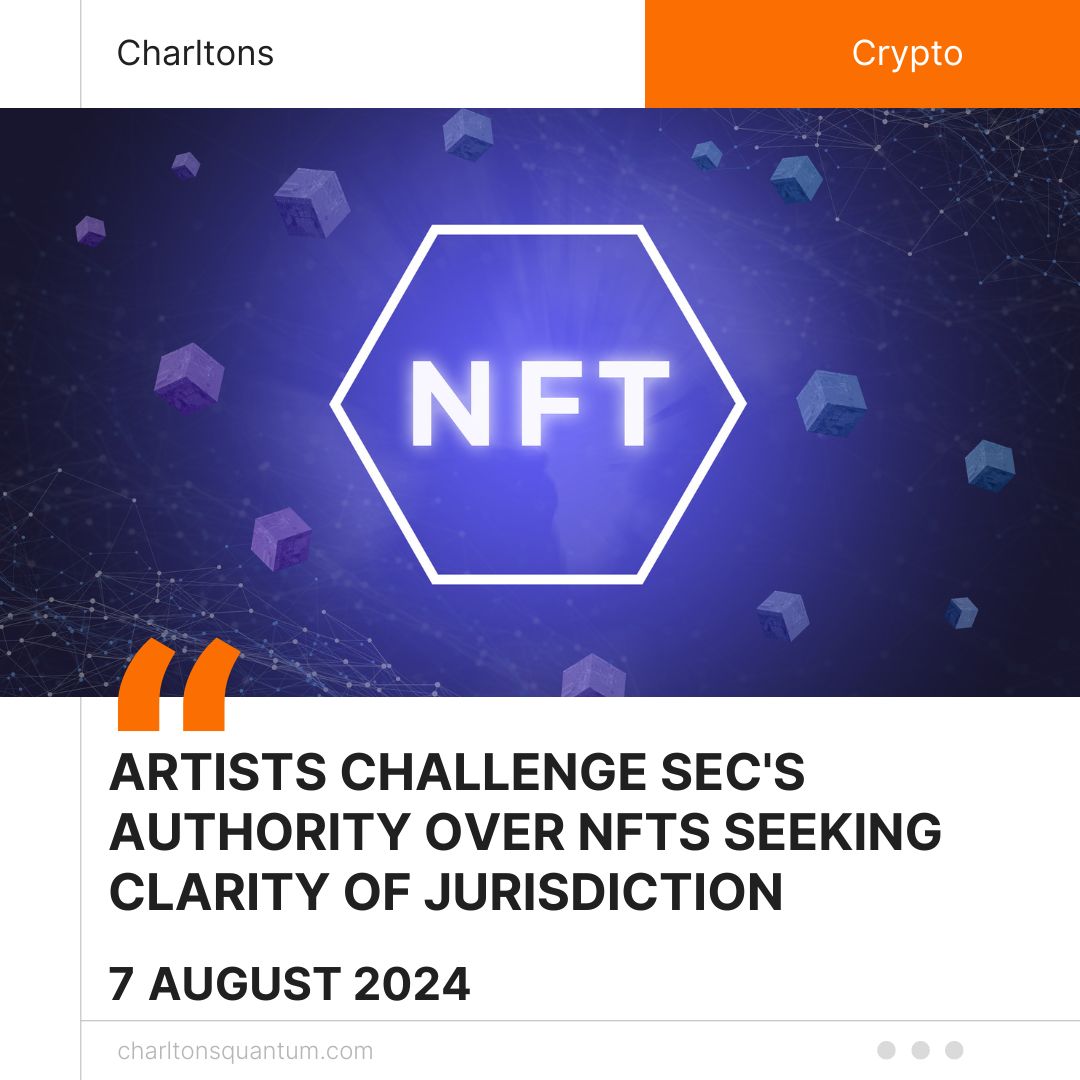
On 29 July 2024, conceptual artist Brian Frye and musician Jonathan Mann filed a pre-emptive lawsuit against the United States Securities and Exchange Commission (SEC) concerning the regulation of non-fungible tokens (NFTs). This legal action follows previous SEC enforcement actions against Impact Theory, LLC, and Stoner Cats, highlighting the increasing scrutiny of NFTs under federal securities laws.
In their complaint, Frye and Mann argue that NFTs, which are unique digital assets often used to verify the authenticity of art and music, should not be regulated as securities. They question whether artists should be required to register their digital art with the SEC and make public disclosures about potential risks, comparing such requirements to the absurdity of demanding traditional artists like Warhol or Hendrix to do the same. The complaint suggests that imposing these regulations on NFTs would stifle creativity and innovation in the digital art space.
The plaintiffs’ digital art projects are at the center of this legal dispute. Frye’s project, Cryptographic Tokens of Material Financial Benefit, consists of 10,320 NFTs and is designed to mock the SEC’s attempt to regulate digital art. Mann, known as “Song a Day Mann,” plans to release 10,420 NFTs featuring unique remixes of his song “This Song Is a Security.” Both projects aim to challenge the SEC’s jurisdiction over NFTs and highlight the perceived absurdity of applying securities laws to digital art.
The lawsuit contends that the SEC’s actions against Impact Theory and Stoner Cats, where both parties settled for allegedly conducting unregistered offerings of crypto asset securities, set a troubling precedent. The plaintiffs assert that there is no legal basis for categorizing NFTs as securities under the Howey test, a Supreme Court decision that defines an investment contract. They argue that the relationship between an NFT creator and a holder is akin to that between any artist and an art owner, where the purchaser holds the asset without entering into an investment contract.
This legal challenge seeks a declaration that the plaintiffs’ NFT projects do not violate U.S. securities laws and an injunction to prevent the SEC from enforcing such regulations against them. The outcome of this case could have significant implications for the regulation of digital art and the broader crypto market, potentially setting a precedent for how NFTs are treated under federal law.
The plaintiffs’ argument emphasizes that the SEC’s current approach to NFTs raises numerous questions and uncertainties for artists, forcing them to consider legal counsel for activities traditionally outside the scope of securities regulation. As the case progresses, it will test the boundaries of the SEC’s authority and could redefine the regulatory landscape for NFTs and digital art.





